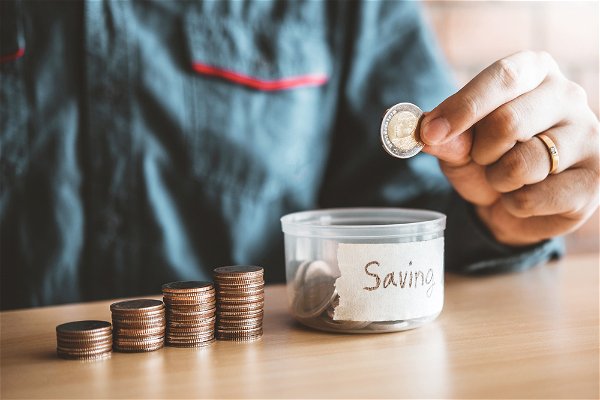
Getting Started
Making any financial decision requires a great amount of thought, effort, and knowledge. Opening a savings account is a great start in order to set yourself up for future financial success, but what type of savings account is best? Deciding what types of accounts to open can be difficult and overwhelming if one is not equipped with the proper knowledge.
Interest Rates on Accounts
“These 2 savings accounts have interest rates of about 5%: Here's which one you should choose” says, “The average interest rate of a checking account is 0.6%” (CNBC, 2023). Making the decision to move this money from a checking account into a savings account may be highly beneficial. You will not only be conserving this money for the future, but you will gain a much higher interest on your money. In this article, we will discuss two different kinds of savings accounts both with around a 5% interest rate.
What are High-Yield Savings Accounts (HYSA)?
In his article “These 2 savings accounts have interest rates of about 5%: Here's which one you should choose”, Mike Winters states that the interest rates of High-Yield Savings Accounts are dependent on the state of the market, inflation, and changes in the Federal Reserve's benchmark interest rate. They are typically offered by smaller online banks or credit unions and possess higher interest rates. Looking for the highest interest rate is an important factor when searching for the best account, although there are several other factors you will want to consider. Specific accounts may have a minimum balance requirement, contain limits on withdrawals, and perhaps even come with specified maintenance fees. You will want to weigh your options and choose the account that will fit your demands and needs best.
What are Certificate of Deposits (CDs)?
CDs (Certificate of Deposit), also known as Time Accounts, are accounts that do have a fixed rate over a specified period of time. According to Winters, They also typically offer higher interest rates at about 5% compared to the average 4.5% that High Yield Saving Accounts do. This term is guaranteed, and can typically span over six months to five years. The two different types of CDs are long-term and short-term; with long-term CDs having slightly higher interest rates.
Considering this information, CDs sound like the obvious choice when it comes to choosing between the two types. But here's the catch:With CDs, you are required to fully commit and lock in to the entirety of the designated term. If you want to withdraw money earlier than the fixed term, you will be charged a fee worth several months interest on the balance.
Choosing an Account for You
A High-Yield Savings Account may be right for you if:
 Require immediate access to your funds
Require immediate access to your fundsWill need to access emergency funds (three-six month funds)
Unsure of when you will need the money
Comfortable with knowing interest rates have the power to fluctuate up or down
A Certificate of Deposit may be right for you if:
Know exact timeline of when you will need your funds
Planning for a downpayment on a future home or car purchase
Have a savings goal that matches duration of the CD (this will maximize your return on interest)
- Example: A 2-year CD with a predictable return rate & planning to send your child to college in 2 years
The Bright Side of Both
Altogether, both High-Yield Savings Accounts and CDs are considered to be low risk investments, safe, and insured by the FDIC (Federal Deposit Insurance Corporation) for up to $250,000 per depositor. Additionally, there is no risk that your money will decline in value like it does have the potential to decline with stocks or bonds.
We’ve Got Your Back,
Your Financially Fit Team

No comments:
Post a Comment